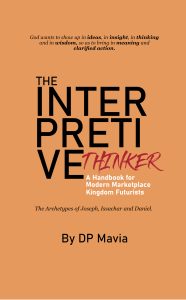There are two market types Gate Keepers and Game Changers. Both are needed and both have a way of thinking and by extension both affect the marketplace in different ways.
Definitions
Gate Keeper – these are market agenda setters. They define the philosophical base of the market. They are large and/or influential. It is impossible to ignore their presence. Gatekeepers. The key word for Gatekeepers is not big but Influence or Deciders. They have vital information that holds together the science of the market.
A gatekeeper is a person who controls access to something, for example via a city gate. In the late 20th century the term came into metaphorical use, referring to individuals who decide whether a given message will be distributed by a mass medium.
Theoretically the term largely comes from the word Gate. The word alludes to a number of notions let us examine a few
- Access
- Information – Vital Information
- Culture Creation
Access
Gatekeepers are wielders of portals. They manage doorways into markets. Most of those we know are monopolies but some unusual ones are small giants. Gates were historically symbols of sage postures. The elders or wise men sat at the gates to deliberate on the city’s concerns. Gates slightly like palaces had judicial characteristics. In the market place a keen eye should be placed upon them any move they make could tilt the equilibrium.
Information – Vital Information
I have a class I host and teach a class called Principality Thinking. One of the maxims derived from this class is that ‘a principality always wars and operates from the level of Information’. Principalities are agenda setters. Agendas are directional and migratory. Every market is information driven. Information in the marketplace is multilayered. Gatekeepers have information that paints and defines the spectrum of the market. They have information that determines the collective operations of the market or a segment of the market.
Some of the gatekeepers we know worldwide include Microsoft an operating system company run by William Gates. It is a gatekeeper because it has the larger share of infiltration of its OS in the computing ecosystem especially the PC. Most PC’s ship off with the Microsoft OS installed and most software (s) is designed and made with respect to the Microsoft OS. Google is a gatekeeper with every respect especially as a door opener to virtual search. Google is has become monstrous to the extent that it has earned itself into the common English verb (to Google). Google has positioned itself as a core midwife of the online experience. Search as an online imperative has been determined to a great extent by Google. Even simple things as online positioning require search engine optimization reliant on Google for one to be found easily online. Google is a gatekeeper.
Culture Creation
Gatekeepers are culture creators and largely also content creators. They understand the power of texts and contexts. They abhor market vacuums. They are very jurisdictional and so tend to assume responsibility of their territories and if unchecked bully their competition. They create culture primarily in their image and likeness. The culture they create can easily become industry practice or drive industry practice. Gatekeepers will create culture that lends them advantage and sustain their dominance. Small enterprises most of the time make gatekeepers their benchmark. But it should be known that such largeness might have its own glaring vulnerable points.
Game Changers
Game changers are usually Trendsetters; they pick weak signals early and have the will to experiment in places where Gatekeepers shun. Game changers are rule manipulators; they can toy along the spectrum of what is deemed common practice and be creative in execution of business practice. Game changers look at enterprise exactly from a position of meaningful play. Game Changers are the dynamic visible threat to Gate Keepers.
Napster Story
The music sharing phenomenon that was a game changer – it was started by the trio John Fanning, Shawn Fanning and Sean Parker. It was founded as a pioneer p2p file sharing Internet service a step that got the Gate Keeper music companies pants down.
As recounted in Downloaded – a documentary soon to premiere at the SXSW film festival, telling the story of a piece of software that came and went and whipped up a new digital music industry in its slip – Napster had 20 million users at the time.
All the Gate Keeping biggies were determined to scourge Napster out of its wits. Napster was sued for copyright infringement and later bought by Rhapsody.
Game Theory – when two people are playing a board game, given to them are simple rules that govern how the game is played. But games essentially like board games are more than winning and losing. The philosophical framework of games thrives on situational reading of strategic advantage. I say situational because every move defines a position and position you to see or be blind to exit points. Unfortunately game players forget to use the same strategic thinking for positioning themselves in life.
Entrepreneurship is like game theory. Most gatekeepers are likely to have become large through game thinking. Game thinking is mobile; it is not static but dynamic. If you are not moving someone else is taking advantage of your immobility. If you are moving someone is observing anticipating your mobility and theorizing on you next step. Game thinking is edgy and prevails on the thin line of inventiveness and innovation. A thriving market needs the regular infiltration of Game Thinkers.



